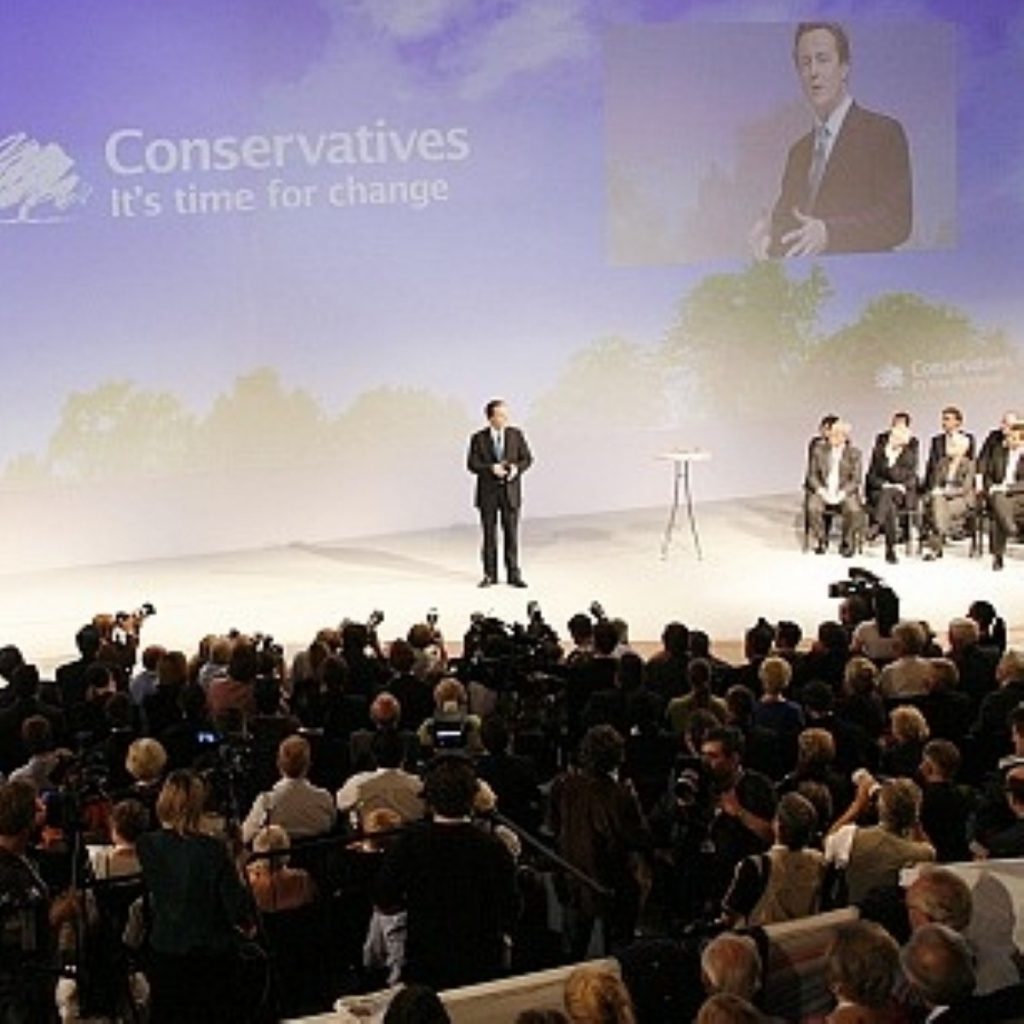Parties face conference backlash
By Alex Stevenson
Political parties face a growing backlash from frustated thinktanks as the “bland” and “closed” traditional autumn conference season plods on.
Thinktanks like the Institute for Public Policy Research (IPPR) and Demos are leading the assault against the conferences, which have dominated British politics throughout the early autumn period for decades.
Following the expenses scandal, which many believe has revealed deep-seated need for change in the way politics in Britain operates, the closed nature of the party conferences and the lack of engagement with non-delegates has come under attack.


With the Liberal Democrat conference now over and Labour’s annual meeting set to begin this weekend, thinktanks have expressed their dissatisfaction with the status quo.
“Conferences predominantly are about people talking to themselves – people who are already very politically aware and engaged,” the IPPR’s co-director Carey Oppenheim told politics.co.uk.
“It feels as if that debate is too narrow. If the expenses scandal tells us anything it is about the urgent need for a renewal of our political culture. It’s not only about tweaking the system.”
Demos’ head of communications, Peter Harrington, agreed that conferences felt too exclusive to many.
“Conferences are insular, hermeitaclly-sealed environments where people in the know just talk to each other,” he said.
“That serves a purpose – a lot of the business of politics goes on, both formally and informally – but it doesn’t do anything to chip away at that huge barrier which seems to exist between the chattering political class and everyone else.”
He added: “It doesn’t take issues and translate them into people’s everyday life. It just pushes those two worlds ever further about.”
While the parties appear uninterested in shaking up the traditional format despite the widespread revulsion against their old habits seen earlier this year, thinktanks are taking their own steps to remedy the situation.
The IPPR has turned to the internet as a means of involving more people in politics. Its strategists are currently working on a study on how politics can be modernised and are testing out their belief that conferences can become more inclusive of party members.
It has allied with three leading party-focused blogs to help achieve this. Contributors to Lib Dem Voice, Labourlist and Conservative Future answered questions about the most pressing issues to each party and their views are being put to panellists at a fringe event at each party.
“The aim is to try and open up the debate beyond the four walls of the conference,” Ms Oppenheim explained.
“This is only the beginning but I think it’s a recognition that the way that conferences have operated in the past is just too closed.”
IPPR is not alone. The Youth Foundation, a centre for social innovation, is hosting events at all three party conferences this year in the unusual location of local currey houses.
Taking place outside the secure zone which prevents members of the public hobnobbing with senior politicians, the events are deliberately being targeted at a more diverse crowd.
“Party conferences and fringes have become ever more stage-managed and ever more bland,” Youth Foundation head Geoff Mulgan said.
“We thought the time was ripe to shake things up get participants engaged in thinking about the big issues that lie the other side of the next election. There’s no law which says that conferences have to be boringly predictable.”
Demos’ approach goes further. It boycotted the conferences completely last year, claiming the conference bubble was merely a smaller version of the one surrounding Westminster.
This year it is returning with a relatively orthodox set of fringe events but an emphasis on the importance of engaging a much wider section of people in politics. The thinktank has been involved in the LSE’s literature festival, the Islam Expo and the Hay-on-Wye literary festival, among others.
“We are looking to be present at all sorts of not just political but social, cultural and literary events all over the country,” Mr Harrington told politics.co.uk.
“If there’s a political debate to be had at the UK Carpet Convention, we’ll be there.”
Listen to Carey Oppenheim give her assessment of IPPR’s Lib Dem fringe event in Bournemouth:

